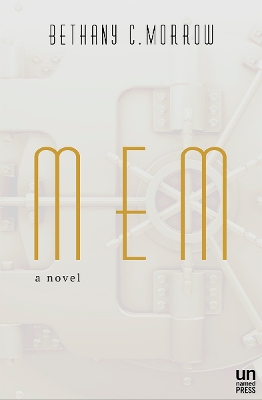
Buzzfeed's #1 Book to Read this Spring
A Best Book of the Month at The Washington Post, Bustle, and Chicago Review of Books
MEM is a rare novel, a small book carrying very big ideas, the kind of story that stays with you long after you’ve finished reading it.
Set in the glittering art deco world of a century ago, MEM makes one slight alteration to history: a scientist in Montreal discovers a method allowing people to have their memories extracted from their minds, whole and complete. The Mems exist as mirror-images of their source — zombie-like creatures destined to experience that singular memory over and over, until they expire in the cavernous Vault where they are kept.
And then there is Dolores Extract #1, the first Mem capable of creating her own memories. An ageless beauty shrouded in mystery, she is allowed to live on her own, and create her own existence, until one day she is summoned back to the Vault. What happens next is a gorgeously rendered, heart-breaking novel in the vein of Kazuo Ishiguro’s Never Let Me Go.
Debut novelist Bethany Morrow has created an allegory for our own time, exploring profound questions of ownership, and how they relate to identity, memory and history, all in the shadows of Montreal’s now forgotten slave trade.
Mem is a fully realized story about a woman who was created to hold a singular memory but becomes so much more, it also happens to be less than two hundred pages.
The story follows Dolores Extract #1, or Elsie, who is the first Mem ever created. She is supposed to be a copy of Dolores that serves to hold a memory that the original no longer wants, and eventually die or are overwritten. We see her as she is summoned back to the vault and are faced with the fact that Elsie does not belong to herself but someone else. During her time in the Vault, we see how different she is from the other Mems who simply live life in a singular memory, most of which are painful in some way. I love that focus of this is on the mortality and emotional implications rather than the technology. It makes us ask questions like “how does memory shape us?”
I will refrain from discussing too much of the story here, as it is really short and is much better without a lot of information. I will, however, say that I think Morrow did an excellent job of creating a full story within a limited amount of pages. At no point did I element not having enough of something expressed or expounded upon, and by the end of it, I was left feeling completely satisfied. If you love thought-provoking sci-fi this is one to check out.
Reading updates
-
Started reading
-
12 July, 2018:
Finished reading
-
12 July, 2018:
Reviewed
